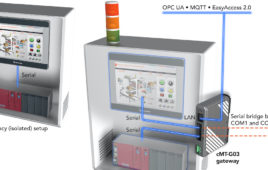
Balsam Al-Dabbagh will graduate with a PhD in Information Systems, after dedicating four years to her research.
One of her supervisors, Dr Eusebio Scornavacca, says there have been huge advances in information communication technologies (ICTs) over the last 20 years, and the new workplace environment is defined by ‘constant connectivity’.
And yet, according to Balsam, there was a “gap in knowledge around when, where and how people use ICTs and the effect they have on productivity”.
Her study aims to fill this gap by investigating employees’ use of ICTs such as smartphones, email and social media, and then exploring the relationship between employees’ levels of self-discipline when using ICTs and their workplace productivity
After surveying 433 employees across New Zealand and from a range of industries, Balsam discovered the relationship between connectivity and productivity was affected by multiple factors.
The research shows people underestimate the time they spend on ICTs, and therefore don’t realise the consequences.
“There are a range of factors that need to be considered: the nature of the work, whether the role is interdependent or independent, the culture of the organisation and the employee’s individual experience, preferences and personal control.”
Overall, her research showed two key lessons for employers.
Balsam found strict ICT self-discipline is optimal for maintaining high productivity for those in large organisations, which tend to expect employees to be readily available via ICTs, and also for those in highly interdependent roles who need to be connected with multiple people or work groups.
However, lenient ICT self-discipline is suited for employees of smaller organisations, which tend to have a more relaxed working culture, and also those in independent roles whose work seldom required interacting with others.
Already Balsam has presented her findings and recommendations to the Microsoft office in Singapore, Google in Sydney and leading ICT scholars at the University of Sydney.
Dr Scornavacca says Balsam’s research “helps managers to design policies and strategies to maximise organisational productivity as well as employees to develop personal strategies to manage their own levels of connectivity”.
Balsam believes that technology is a crucial tool for any organisation, but says it’s important that employers and employees are aware of the consequences.
“We tend to underestimate the amount of time we spend on all these communication technologies and sometimes get carried away.
“The moral of the story is that employers need to be more aware of ICT connectivity in the workplace, and they need to promote the development of employee-tailored strategies on the use of ICTs.”
Filed Under: M2M (machine to machine)




